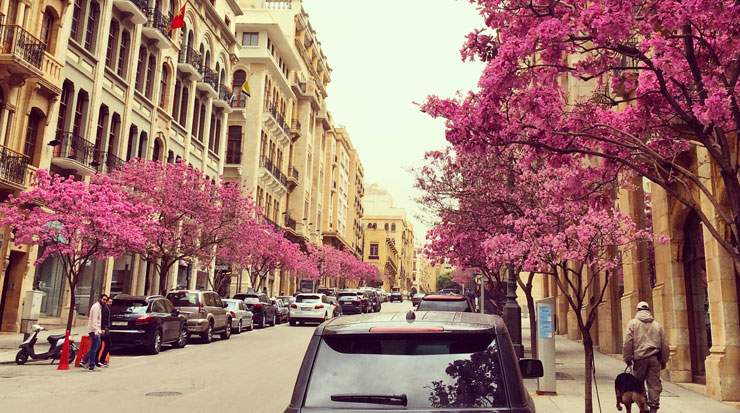WITH A HISTORY SPANNING MORE THAN 5,000 YEARS, THE COUNTRY IS FILLED WITH STORIES AND BRILLIANT POSSIBILITIES FOR REWARDING JOURNEYS.
Tourism has long been one of Lebanon's leading economic sectors, representing a major source of income and employment for the country.
The World Travel and Tourism Council's latest report ranked Lebanon 36th worldwide in terms of travel and tourism's total contribution to GDP, which maintained its level at 19.4 percent this year, exceeding by far the world's 10.2 percent average.
As Chadi Gedeon, general manager, Mövenpick Hotel & Resort Beirut, emphasised, tourism is one of the pillars of the Lebanese economy but its performance for the coming years hinges on political and security stability both locally and in the region.
Since 2011, the spillovers from the political crisis have sent tourist arrivals and tourist spending to new lows while additional pressures in the form of travel warnings, airline restrictions and a GCC travel ban have seen the country struggling to maintain its internal security and stability.
Although 2016 was somewhat of a strenuous year for the industry, movers and shakers are expressing feelings of optimism and are stronger than ever before, following a successful year so far.
"The tourism sector in general registered a more positive first half (H1) as a result of prevailing political stability in the country," revealed, Dagmar Symes, general manager, Phoenicia Hotel Beirut.
Indeed, and as the rest of hoteliers underlined, the new presidential era spurred a sense of security in the country and by February the GCC travel ban was finally lifted.
According to BLOMINVEST Bank, the first eight months of the year including the peak summer season saw tourist arrivals rising by 13.2 percent year-on-year with the country welcoming 1.29 million visitors by August.
Meanwhile, and as Hartmut Grauel, general manager, Coral Beirut Al Hamra Hotel, revealed, the main market segment contributing to the growth was MICE business.
THE WIND OF CHANGE
The overwhelming observations of industry professionals across the country reflect an overall improvement in H1 compared to the ongoing challenges experienced by the industry during the corresponding period in 2016.
Mahammad Zein, director, sales and marketing, Four Points by Sheraton Le Verdun, reported an increase in occupancy which was more pronounced during the second quarter of the year, adding that figures were above budget and expectation.
Contributing to this, Francois Galoisy, general manager, Radisson BLU Martinez Hotel, revealed that H1 has been very successful in terms of arrivals with a remarkable rise in the average length of stay and disclosed that the resort's latest statistics indicate that the number of tourist arrivals has been increased by seven percent year-to-date until June.
Galoisy also explained that the notably productive year, what hotels in the region are experiencing is directly tied to the political stability that followed the presidential elections, and expressed his hope that this stability would face no disruption before the next tourist season kicks in. "The destination has gained the trust of Europeans again and we started receiving bookings for late 2018 which was not the case for the last few years," enthused, Galoisy.
Corroborating the view of his peers, Zein underscored just how important security is, stating that financial and geopolitical stability is fundamental to a successful year and future.
Supporting the positivity that can be felt among tourism players are the recent statistics released by Ernst & Young, indicating that hotel occupancy in the capital city of Beirut stood at 63.4 percent during Q1, up from the 54.8 percent recorded in the corresponding period in 2016.
In addition, HotStats' MENA Chain Hotels Market Review reported that the hospitality scene in the capital witnessed a healthy and assuring start of the year with hotels in the Lebanese capital indicating a 21 percent year-on-year jump in profit per room throughout Q1, which complemented a 7.2 percent increase in RevPAR.
Remarkable growth has also been recorded at Beirut–Rafic Hariri International Airport with the total number of passengers rising by an annual seven percent to stand at 6.4 million during the first nine months of the year.









